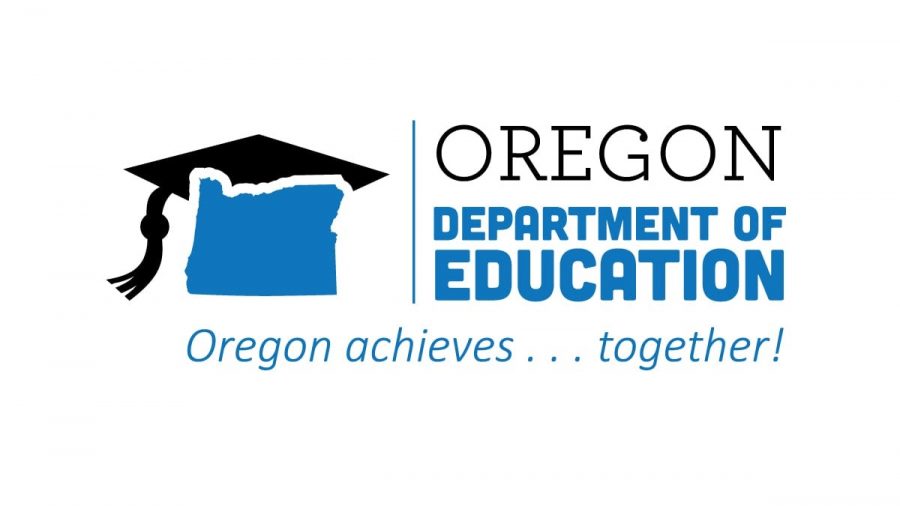Beaverton student receives response from ODE about pass-fail system
Compiled by the Hummer Staff
Recently, BHS sophomore Colin Fowler reached out to the ODE concerning the new Pass/Fail grading system, and got a response from their director, Colt Gill. The letter outlines the reasons behind the pass/fail decision and highlights the importance of student voice during this time.
Dear Mr. Gill,
My name is Colin Fowler and I am currently a sophomore at Beaverton High School. Yesterday, I learned that our grades will now be pass-fail instead of letter grades. When I first heard this I was confused and surprised. While I understand the decision is to give disadvantaged students a way to maintain their current grades during this difficult time, on the other hand, it discredits the work that other students have put in for the first half of the semester.
Take, for example, the Watertown Unified School District Board of Education in Wisconsin. They also recently adopted the pass-fail grading system but at the high school level, they gave students the option to continue with the current grading system or switch to pass-fail. This alternative solution is perfect for rewarding students for the hard work they have put in so far, while also not penalizing students for being unable to complete classwork due to factors outside their control. As Cassandra Schug, the Watertown Unified School District Superintendent stated: “We want our students to learn, but not be penalized for something that is out of their control.”
What I ask is that you take this into consideration. It is not too late to give students the option to keep their letter grades or switch to pass-fail. This solution is the best for all and a way that students can continue to be motivated as we work through the remainder of the school year.
Thank you for your consideration. I look forward to hearing from you.
Sincerely,
Colin Fowler
Dear Colin,
I appreciate your email. I also appreciate your dedication to academic success. As you can imagine, I am receiving an unusually high volume of email as we support our students and educators through the many COVID-19 mitigation efforts and I am limited in my ability to respond to every email I receive.
COVID-19 has caused a significant challenge to education in Oregon and across the country and world. We are attempting to take an equitable approach that will allow students to continue to learn and prepare for their next courses, while safeguarding student opportunity.
Our guidance maintains Oregon’s high standard of 24 credits for every high school student while providing a clear path to graduation and reducing barriers that may result from extended school closure. As a means to promote learning and award credit, all districts in Oregon shall move from letter grades to Pass/Incomplete (or local equivalent) for students enrolled in high school courses for the remainder of the 2019-20 school year. We must consider the severe impact of the pandemic on students and families across the state and take steps that prioritize ongoing learning while safeguarding against unintended consequences as students pursue postsecondary opportunities.
Universities across the country, including our Oregon public universities, have made it clear that students will not be penalized for missing traditional standardized tests or for posting Pass/Incomplete transcripts for the spring 2020 semester/trimester(s). One of the clearest explanations of the assurances our students should expect comes from Harvard University that states plainly that students “will not be disadvantaged as a result . . . [of] the current coronavirus outbreak”.
The majority of Oregon’s teachers are not accustomed to delivering instruction remotely (whether online or offline). We do not want this transition to harm student GPAs. We also recognize that in this setting, educators must identify essential learning to prepare students for upcoming courses. This process may also impact the assignments and grading models and patterns.
We must also consider that there may be students and families whom districts attempt to engage and cannot locate. This may be due to a variety of reasons such as relocation, family illness, houselessness, inability to access phone/internet, students working to support themselves/family, or that the school has not been able to establish a trusting relationship with the student/family. In our policies we must consider the experiences of all of our students.
During this extended school closure, teachers will experience gaps in effectively evaluating what students know and can do. Distance learning capacity does not exist at scale (i.e., many students do not have full access to technology and connectivity and many educators do not yet have sufficient training, technology and resources) for all students to have a comparable opportunity to learn and demonstrate their learning. This can make grading a challenging and possibly unfair practice during extended school closures. Grading in this setting may reflect a student’s access to learning materials and family support more than individual learning. As such, in addition to descriptive feedback, teachers shall award only Pass/Incomplete for all coursework and learning that takes place during this closure. Subsequent changes should also be made to the high school report cards and transcripts to clearly document the grading changes were directly tied to the COVID-19 closures.
Oregon’s temporary change in practice to post credits without letter grades will not change existing GPAs or factor into the calculation of GPAs this term. Colleges lean heavily on an official document called the School Profile. These profiles explain circumstances to colleges, including graduation requirements, GPA calculations, honors courses, and other elements that make schools unique. In this case, the shift to Pass/Incomplete in the face of a worldwide pandemic will be described and accepted without penalty. This departure from awarding grades is temporary; previous grading practices will resume when school can physically reopen.
Additionally, colleges and universities across the country are temporarily updating their admissions requirements to accept (without disadvantaging students) Pass/No Pass grades in lieu of letter grades for all courses completed while schools are closed. This ensures the health and safety of our communities remains a priority during the COVID-19 response without penalizing students. Institutions of higher education (e.g., Oregon Higher Education Coordinating Commission, California university and college system, Stanford University, and Harvard University) continue to issue statements outlining these revised admissions policies. The Oregon public universities have committed to ensuring that applicants and prospective students are considered fairly in light of the educational interruption they have endured. The Oregon Promise program has also accommodated this grading structure.
Again, thank you for writing and I hope that this information provides some assurance to you regarding this decision.
Thanks,
Colt
Image from the Salem-Keizer School District. The Oregon Department of Education’s logo and slogan.




![District changes have led to restrictions on AP classes for underclassmen [Graphic made with Canva].](https://beavertonhummer.com/wp-content/uploads/2024/06/Comic-Bonanza-600x600.png)


carson • Apr 22, 2020 at 8:59 pm
I think school should be completely done for the year no finals no school work and right into summer break instead